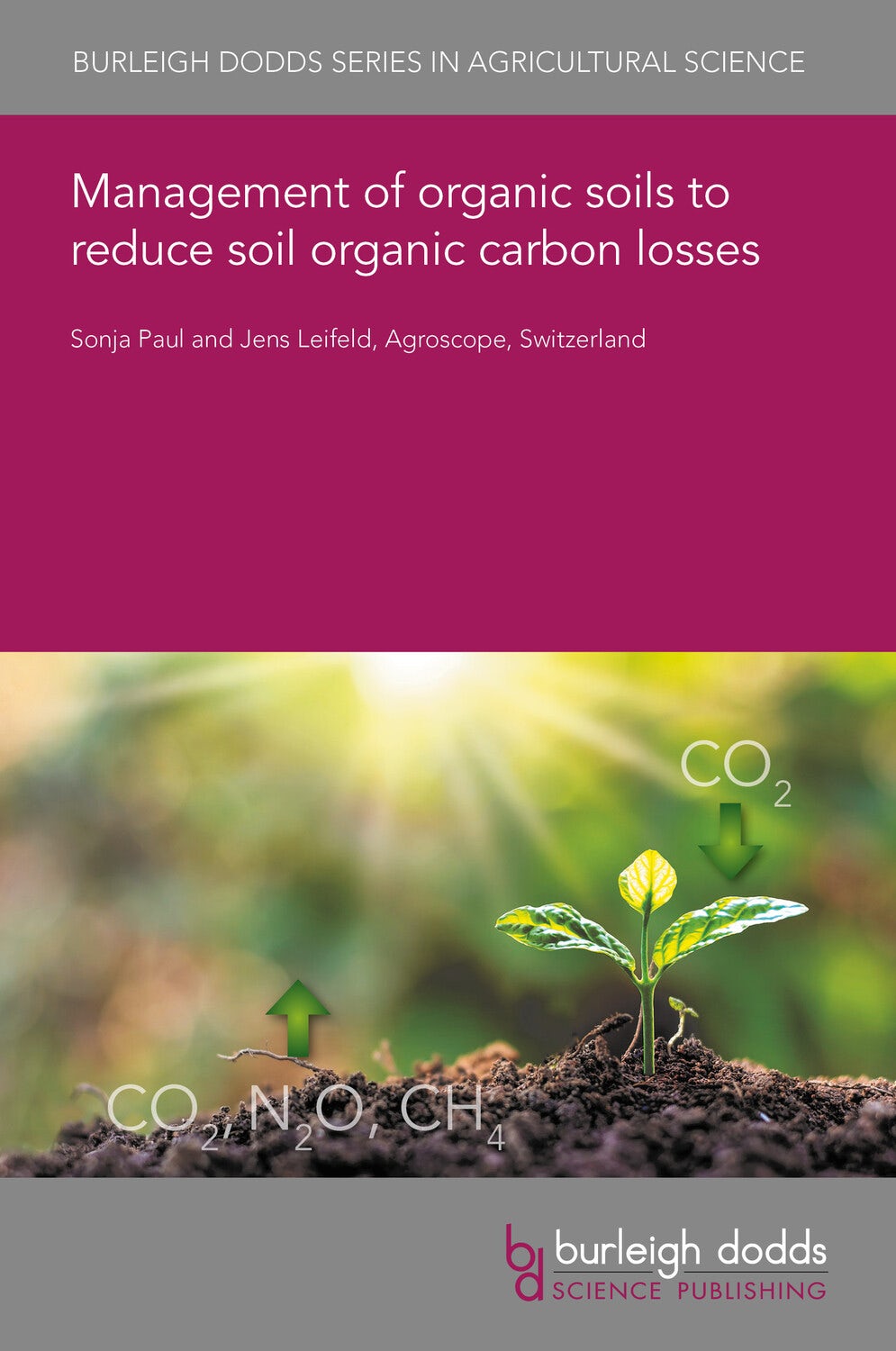We're sorry. An error has occurred
Please cancel or retry.
Management of organic soils to reduce soil organic carbon losses
Regular price
£0.01
Sale price
£0.01
Regular price
£0.00
Unit price
/
per
Sale
Sold out
Re-stocking soon
Organic soils of intact peatlands store 1/4 of the global soil organic carbon (SOC). Despite being an important source of methane (CH4), they are climate coolers because they continuously accumulat...
Read More

Some error occured while loading the Quick View. Please close the Quick View and try reloading the page.
Couldn't load pickup availability
- Format:
-
07 November 2022

Organic soils of intact peatlands store 1/4 of the global soil organic carbon (SOC). Despite being an important source of methane (CH4), they are climate coolers because they continuously accumulate new organic carbon. However, when these organic soils are drained for agriculture, the resulting aerobic conditions lead to fast decomposition of the peat and the release of carbon dioxide (CO2) and nitrous oxide (N2O), turning them into net greenhouse gas (GHG) sources. Reducing the environmental footprint of managing these soils requires a good understanding of the processes during drainage of formerly anoxic soil horizons and eventual subsequent rewetting. We describe changes in soil properties and carbon dynamics following drainage of peatlands and discuss management strategies to reduce carbon loss from drained peatlands by raising the water table to either restore the peatland ecosystem, or to cultivate water-tolerant crops. In addition to rewetting, engineering approaches with continuous management at deeper water tables are evaluated in terms of SOC loss.

Price: £0.01
Publisher: Burleigh Dodds Science Publishing
Imprint: Burleigh Dodds Science Publishing
Publication Date:
07 November 2022
ISBN: 9781801463249
Format: eBook




